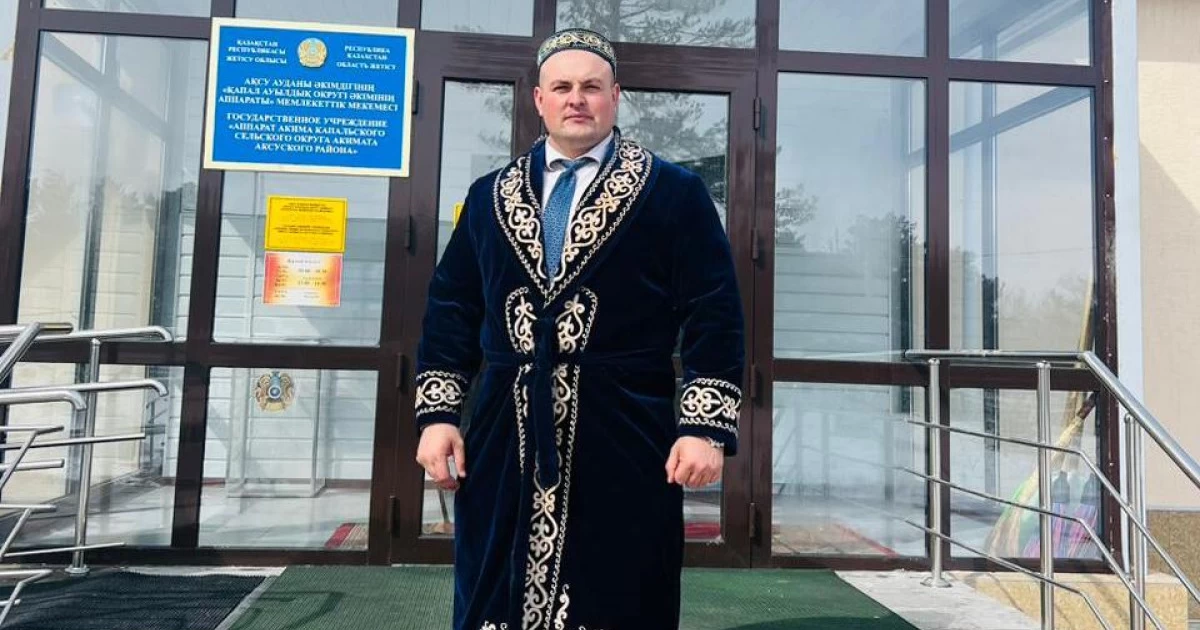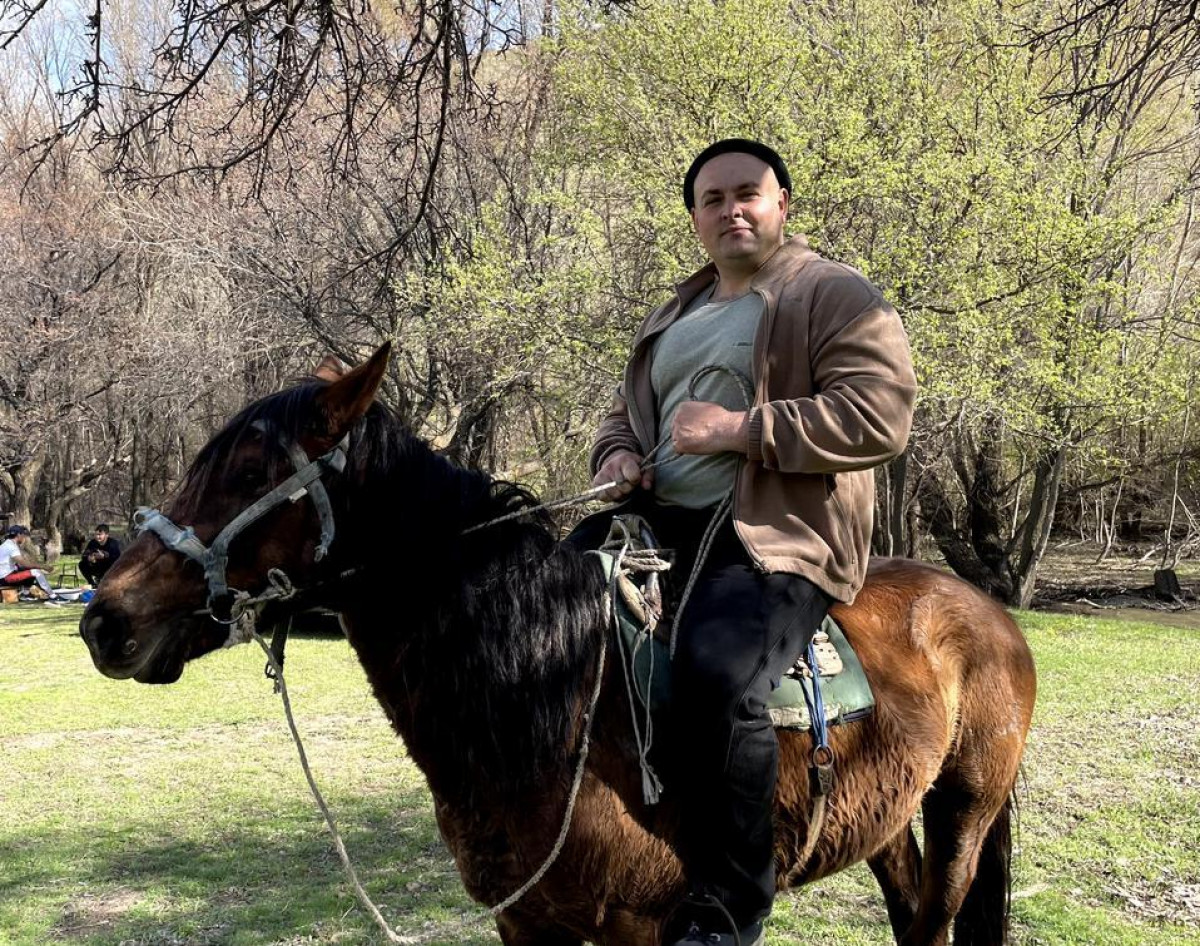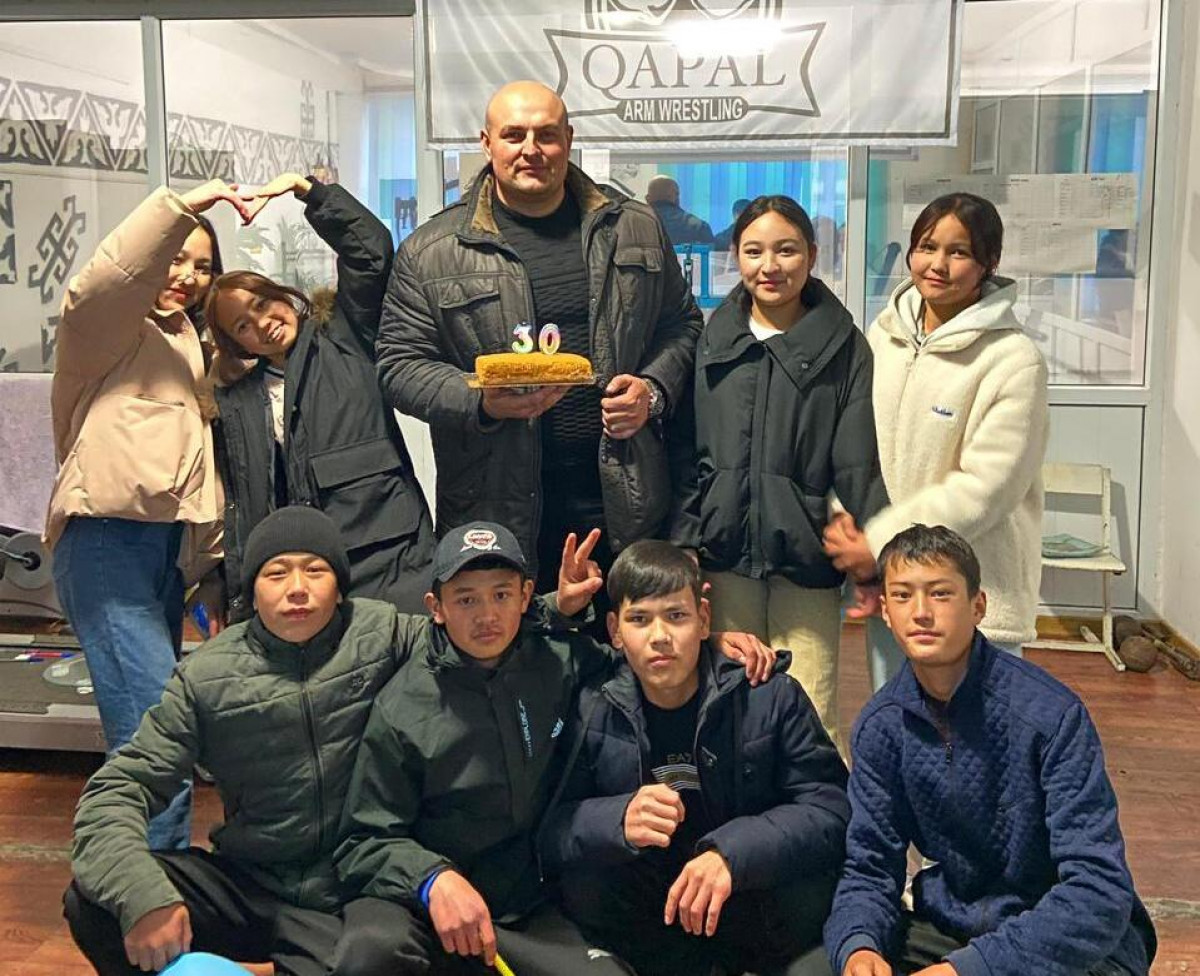
Vladimir Chepel, who lives in the village of Kapal, Aksu district, Zhetysu district, is a public figure, a guardian of the Kazakh language. A citizen who cares about the future of his native land, including his native village. He works in the office of the akim of the Kapal rural district and never tires of addressing young people, talking about the importance of knowing the state language, wherever he is. In an interview with Turkystan.kz, 31-year-old Vladimir, Russian by nationality, but Kazakh at heart, spoke about the status of the Kazakh language and its place in society.
“I was born in 1993 in the beautiful village of Kapal. I studied at the high school named after Gali Ormanov. In 2011, I entered Taldykorgan Law College and graduated in 2013. Then I continued my education at the Academy of Economics and Law named after O. Zholdasbekov. Although I was educated in Russian, I know the Kazakh language well. Because I am a child who grew up in village dust and wallowed in its soil,” says Vladimir Chepel.
Vladimir, who firmly adheres to the motto “The state language is my language,” is known among his fellow villagers as the “yellow Kazakh boy.”

“It’s hard to remember when I started speaking Kazakh. I will not exaggerate if I say that the Kazakh language was absorbed with mother’s milk. I will tell you something interesting, before answering in Russian, I mentally compose the text in Kazakh. Because my brain thinks in Kazakh.First, I will systematize what I want to say in the national language and translate it into Russian. I work in a Kazakh-speaking team. If among my colleagues I am Vladimir, then my fellow villagers say “Vake”. I often come to the village for work. Then the elders and our white-faced mothers come out in front of me, say that a “yellow boy” is coming, and show them their warmth. Although I am Russian by nationality, I consider myself a Kazakh. As I already said, I know the Kazakh language better than Russian. I grew up in a village, and all my friends were Kazakh children. My current environment is also Kazakh. That’s why I say that I am Kazakh,” said V. Chepel.
Vladimir, who is fluent in Kazakh, now works in the Kapal village administration.
“In 2011, I entered college by correspondence. In the same year, I got a job as an ordinary worker at Altyn Dala AGRO Zhetysu LLP. Later I worked as an office manager and lawyer for the company. Since childhood, my parents were able to instill in me a desire for education and work. In 2014, the company closed and I lost my job completely. Then I found out that the position of leading specialist was vacant in the office of the akim of the Kapal rural district. As soon as I heard the news, I did some preparation and took the state testing. In 2015, I successfully passed the exam and was hired as a leading specialist. In 2020, following the results of an internal competition, I was appointed chief specialist of the akim’s office of the Kapal rural district. Now I work in the office of the akim of the Kapal rural district,” says the chief specialist.
Vladimir says he is saddened that among them there are citizens who do not speak Kazakh.In his opinion, there should be a need to expand the field of the Kazakh language.

“I am a guardian of language. I have great respect for the state language. I always invite people around me, that is, my colleagues, friends, contemporaries, to study the Kazakh language. I will help them as much as I can in learning the language. In fact, we can say that our people fully understand the state language. 90 percent can speak fluently. 6 percent can express thoughts even if they cannot pronounce some words and letters correctly. And the remaining 4 percent understand, but are afraid to speak. In terms of language, there is no pressure in the country. This is because our Constitution does not limit the ability of any person to learn any other language. But since we live in the Republic of Kazakhstan, we must respect its language, religion, land, water - everything. And if we don’t know the language of the place where we live, how can we understand everything else?! It all starts with language. It’s not for nothing that our people say: “Language is the key to friendship.” That is, every citizen of the country must know the state language. Only then can you fully understand the history and essence of the Kazakh people,” says V. Chepel.
Vladimir noted that the Kazakh language is not as difficult to learn as many people think.
“Speaking Kazakh is not difficult. Depends on the intention. I think that anyone who strives can speak up. To those who are just learning the state language, I would say: the most important thing is to try. You need to read more books and articles. Feel free to speak Kazakh in public. In addition, listening to radio and television programs is very useful. In addition, the student should not be embarrassed by pronunciation and accent,” he says. At the end of his speech, Vladimir Chepel called on all Kazakhstanis for unity and solidarity and congratulated the people of the country on the Day of Unity of the People of Kazakhstan.
“Congratulating you all on this great holiday, I wish great health, prosperity and happiness to your families! “Different religion, different language, one desire” means that representatives of nationalities and ethnic groups gathered under one roof increase the unity and prosperity of our country and live in peace in our country.
Peace, cooperation and the peace of many peoples are the main wealth of our country. Let's try to keep this as the apple of our eye. May our goodness and unity increase!” Vladimir wished.
Meruert Sagymkhan
translated by Qazalem